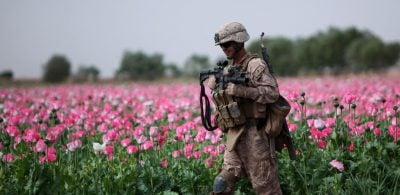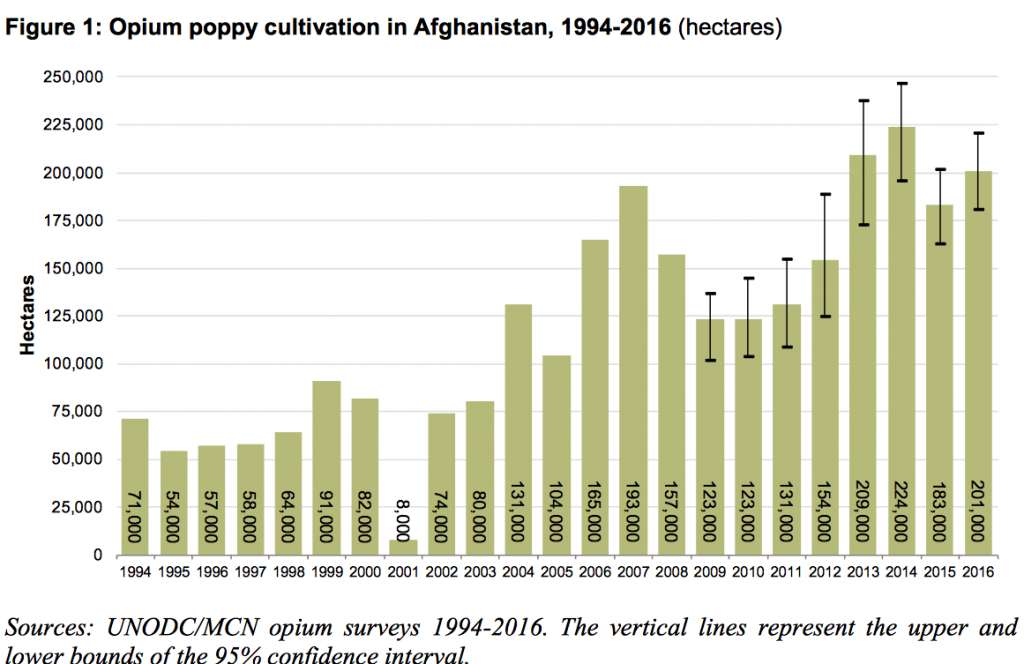A so-called interim Afghan government is to be headed by Prof. Ali Ahmad Jalali, who just so happens to be a US citizen.
Notre site en Français: mondialisation.caNuestro sitio en español: Globalizacion
Asia-Pacific Research
Global Research
Afghanistan’s “Color Revolution”: Who Is Ali Ahmad Jalali?
Jalali is one of the foremost personalities to emerge from the country
By Prof Michel ChossudovskyGlobal Research, August 18, 2021Region: Asia, Middle East & North AfricaTheme: IntelligenceIn-depth Report: AFGHANISTAN



All Global Research articles can be read in 51 languages by activating the “Translate Website” drop down menu on the top banner of our home page (Desktop version).
Visit and follow us on Instagram at @crg_globalresearch.
***
.
What is abundantly clear is that the U.S. has not been thrown out of Afghanistan. Quite the opposite.
A so-called interim Afghan government is to be headed by Prof. Ali Ahmad Jalali, who just so happens to be a US citizen.
“Regime Change” in Afghanistan? Troop withdrawals coupled with a US sponsored color revolution?
Born in Afghanistan, Ali Ahmad Jalali is currently a distinguished professor at the National Defense University’s Near East South Asia Center for Strategic Studies (NESA).
Based at Fort Lesley J. McNair, Washington DC, The National Defense University is a partner institution of the US Department of Defense.

The motto of the National Defense University (NDU) is “All About Peace”. This what they teach at the NDU:
“NDU educates joint Warfighters in critical thinking and the creative application of military power to inform national strategy and globally integrated operations, under conditions of disruptive change, in order to conduct war”
Appointed by the Pentagon, “Professor Jalali is Our Man”. He has an expertise in Counter-Insurgency and Counter-Terrorism Ops as well as in so-called “Post-Conflict Stabilization and Reconstruction”. He has also lectured at U.S. Army War College, the Command and General Staff College, Fort Leavenworth, Kansas as well as at the British Army Staff College, Camberley, UK.
Negotiations with the Taliban
The formation of a US sponsored interim regime should come as no surprise. US withdrawal from Afghanistan has been the object of extensive negotiations between Washington and the Taliban. An earlier deal was signed in Doha in late February 2020 during the Trump administration.
The transition timeline including the appointment of Prof. Ali Ahmad Jalali (a former Minister of the Interior, 2003-2005) had been agreed upon well in advance. On August 09, 2021, US special envoy Zalmay Khalilzad arrived in Doha with a US team of negotiators for 3 days of top level discussions with representatives of both the Taliban and the defunct government of Ashraf Ghani.
In the wake of the Doha meeting on August 13,the “Green Light” was given to Taliban Forces to capture Kabul as well as most of the provincial capitals. (See Southfront, August 18)
The evacuation of the US embassy described by the media is a smokescreen. The entry of the Taliban into Kabul which prompted the U.S to evacuate its embassy, had been carefully planned and agreed upon.
Similarities to the evacuation of US troops from Vietnam in April 1975, are nonsensical.
The presidential palace was taken without a fight.
The Taliban have not won the war. A US appointee is to lead an interim administration.
Flashback to 9/11: Why was Afghanistan Invaded on October 7, 2001?
Almost 20 years later, both the media and the US government, in chorus, continue to point to the 9/11 attacks and the role of Al Qaeda, allegedly supported by Afghanistan, when in fact (amply documented) Al Qaeda was an intelligence asset created by the CIA.
Lest we forget, Osama bin Laden had been recruited by National Security Advisor Zbigniew Brzezinski in the 1980s during the so-called Soviet-Afghan war.
The legal argument used by Washington and NATO to invade Afghanistan was that the September 11 attacks constituted an undeclared “armed attack” “from abroad” by an unnamed foreign power, and that consequently “the laws of war” apply, allowing the nation under attack, to strike back in the name of “self-defense”.
NATO’s North Atlantic Council meeting in Brussels on September 12, 2001, adopted the following resolution:
“if it is determined that the [September 11, 2001] attack against the United States was directed from abroad [Afghanistan] against “The North Atlantic area“, it shall be regarded as an action covered by Article 5 of the Washington Treaty”. (emphasis added)
The bombing and invasion of Afghanistan which commenced on October 7, 2001 was described as a “campaign” against “Islamic terrorists”, rather than a war.
To this date, however, there is no proof that Al Qaeda was behind the 9/11 attacks.
Even if one accepts the official 9/11 narrative, there is no evidence that Afghanistan as a Nation State was behind or in any way complicit in the 9/11 attacks.
The Afghan government in the weeks following 9/11, offered on two occasions through diplomatic channels to deliver Osama bin Laden to US Justice, if there were preliminary evidence of his involvement in the 9/11 attacks. These offers were casually refused by Washington.
The Hamid Karzai Government
On December 22, 2001, less than three months following the US-NATO October led invasion, Hamid Karzai, a Consultant to UNOCAL (Union Oil Company of California), was called upon by US-NATO to lead an Afghanistan interim government.
Ali Ahmad Jalali was appointed by Karzai (approved by Washington) to the position of Minister of the Interior. During his mandate (2003-2005) Jalali was put in charge of the training of some 75,000 Afghan National Police (ANP) and Border Police (ABP). Officially these police forces had a counter-terrorism mandate. Unofficially they turned a blind eye to the (multibillion dollar) opium trade which was protected by the US military.
And now Professor Jalali of the National Defense University will be leading an interim Afghan government, with selected appointees.
The Smoking Gun. Narcotics and the Afghan Opium Trade
One of the key strategic objectives of the October 2001 invasion of Afghanistan was to restore the opium trade following the Taliban government’s successful 2000-2001 drug eradication program which led to a 94% collapse in opium production (8000 hectares in 2001, see graph below).
At the October 2001 session of the UN General Assembly (which took place barely a few days after the beginning of the 2001 bombing raids), the Taliban Government was congratulated by the United Nations: “No other UNODC member country was able to implement a comparable program”.
Observe 9/11 Anniversary by Calling for an End to the Afghan War
What is the future of the narcotics trade?
How will this multibillion trade (which until recently was protected by US forces) be affected by the withdrawal of US troops from Afghanistan. Private mercenary companies are also involved in protecting the opium trade.
A US appointee and professor at the National Defense University at Fort Nair in Washington is slated to head the interim government and form a Cabinet, following the Taliban takeover of Kabul and the “official” withdrawal of US Troops.
*
Note to readers: Please click the share buttons above or below. Follow us on Instagram, @crg_globalresearch. Forward this article to your email lists. Crosspost on your blog site, internet forums. etc.
Featured image: Former Interior Minister Ali Ahmad Jalali. Credit: Twitter/@ajalali
Comment: Pictured are U.S. Soldiers guarding a poppy field in Afghanistan for our Deep State Drug Trade a Crime Syndicate Special and our Gov’t is Controlled by the British ZIONIST Empire crime syndicate. Zionist British Empire controls Big Tech, Bill Gates who was knighted by them, Angelina Jolie made a Grand Dame and Media as well as Big Pharma.
- Bill Gates receives honorary knighthood – NBC Newshttps://www.nbcnews.com/id/wbna7065790Bill Gates receives honorary knighthood Microsoft’s Bill Gates received an honorary knighthood Wednesday from Queen Elizabeth II. That allows him to use “KBE” after his name, but not to put “Sir”…
Cabal Crime Syndicate Princess Angie Jolie:
Stories of Recovery: Angelina Jolie
On her rise to fame, Jolie has mentioned trying just about every drug possible. “I’ve done coke, heroin, ecstasy, LSD, everything” The actress has admitted that her use of these illicit narcotics was connected to her own deep seated issues with depression that have affected her since her teens.
- Estimated Reading















